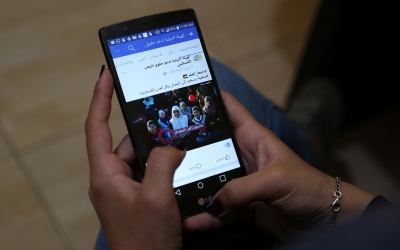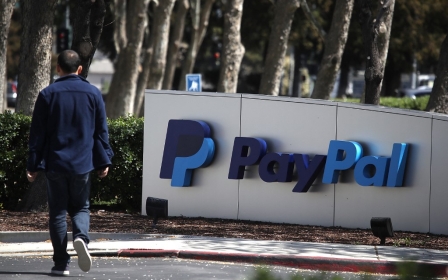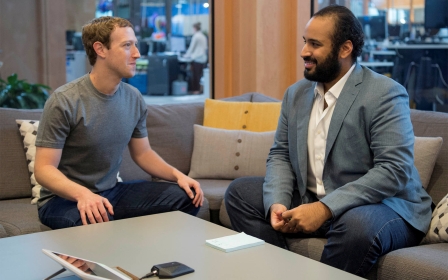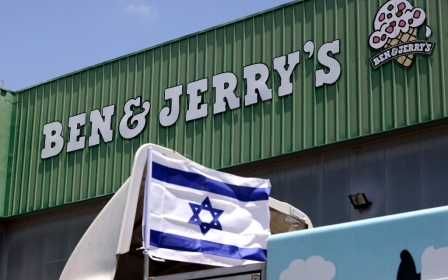'Virtual siege': Palestinians urge PayPal to stop denying service
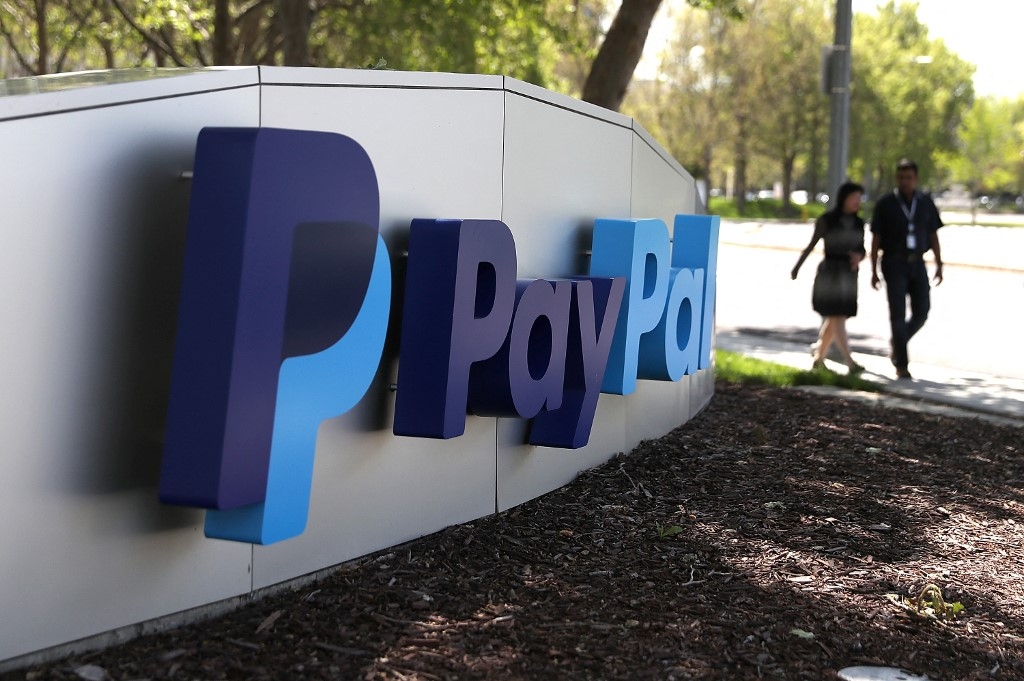
Rights advocates are calling once again on the world’s largest online payment system to stop denying its services to more than five million Palestinians in the West Bank and Gaza.
PayPal currently provides full access to users in Israel and illegal Israeli settlements in the West Bank, but for years - and despite repeated requests, earlier campaigns and pressure from shareholders - has refused to offer the same in the occupied Palestinian territories.
'It will be a game changer for tens of thousands of young Palestinians who can afford to have income and afford them a respectful life'
- Nadim Nashif, 7amleh
But with growing calls from young Palestinians who want access to PayPal to earn a living; and with the employees of Google, Apple, Amazon and Facebook calling earlier this year for their companies to support Palestinians, the moment is ripe for a new push, say campaigners.
“We feel that maybe there is some kind of momentum in the US, some kind of political change with Biden, but mainly with some of the left of the Democratic Party that is influencing the Silicon Valley scene,” said Nadim Nashif, executive director of 7amleh, an organisation which focuses on the advancement and protection of Palestinian digital rights.
“We are hoping this momentum will drive more action and pressure towards the company.”
On Tuesday, 7amleh and a coalition of groups sent an open letter to PayPal CEO and President Daniel Schulman, urging him to expand the company’s services and asking why illegal Israeli settlements are served when Palestinians are not.
They are also calling on supporters to rally online with #PayPal4Palestine and will host a webinar on Thursday featuring Palestinian entrepeneurs and others who will speak about how PayPal’s policies have impacted their lives and careers.
'A kind of monopoly'
Even years into pushing for PayPal to serve Palestinians, Nashif said it remains unclear why the company operates in places with corruption and terrorism concerns like Yemen and Somalia, but doesn’t operate in the occupied Palestinian territories.
MEE asked PayPal why it doesn't operate in the occupied Palestinian territories, whether it was concerned that it was offering services to illegal Israeli settlers and whether the company was under any pressure from the Israeli government or US Treasury, but did not hear back from the company by the time of publication.
The decision has had a significant impact on the Palestinian economy, say campaigners. Palestinians who want to buy or sell items online, or those who work remotely and could be paid through PayPal, are locked out of the system.
And it’s a problem that goes beyond PayPal. Many e-commerce platforms, like eBay, use the system.
“PayPal are a kind of monopoly. They own most of the global market in digital payments so they basically set the tone,” Nashif said.
“The others follow them in the countries where they are operating. So when they say Palestine is kind of blacklisted, the rest follow.”
7amleh research has shown that access to PayPal would improve the lives of over 80 percent of Palestinian households, generate employment opportunities for more than 42,000 college graduates, accelerate the growth of small businesses and facilitate the work of civil society organisations that relay on crowdfunding.
Particularly for young, tech-savvy Palestinians who do not have freedom of movement and have limited employment opportunities, PayPal could significantly improve their lives, he said.
"This is a kind of second economic siege besides the physical one. This is an economical siege, a virtual one," he said.
"We truly believe that the moment that this will open, it will be a game changer for tens of thousands of young Palestinians."
Middle East Eye propose une couverture et une analyse indépendantes et incomparables du Moyen-Orient, de l’Afrique du Nord et d’autres régions du monde. Pour en savoir plus sur la reprise de ce contenu et les frais qui s’appliquent, veuillez remplir ce formulaire [en anglais]. Pour en savoir plus sur MEE, cliquez ici [en anglais].


